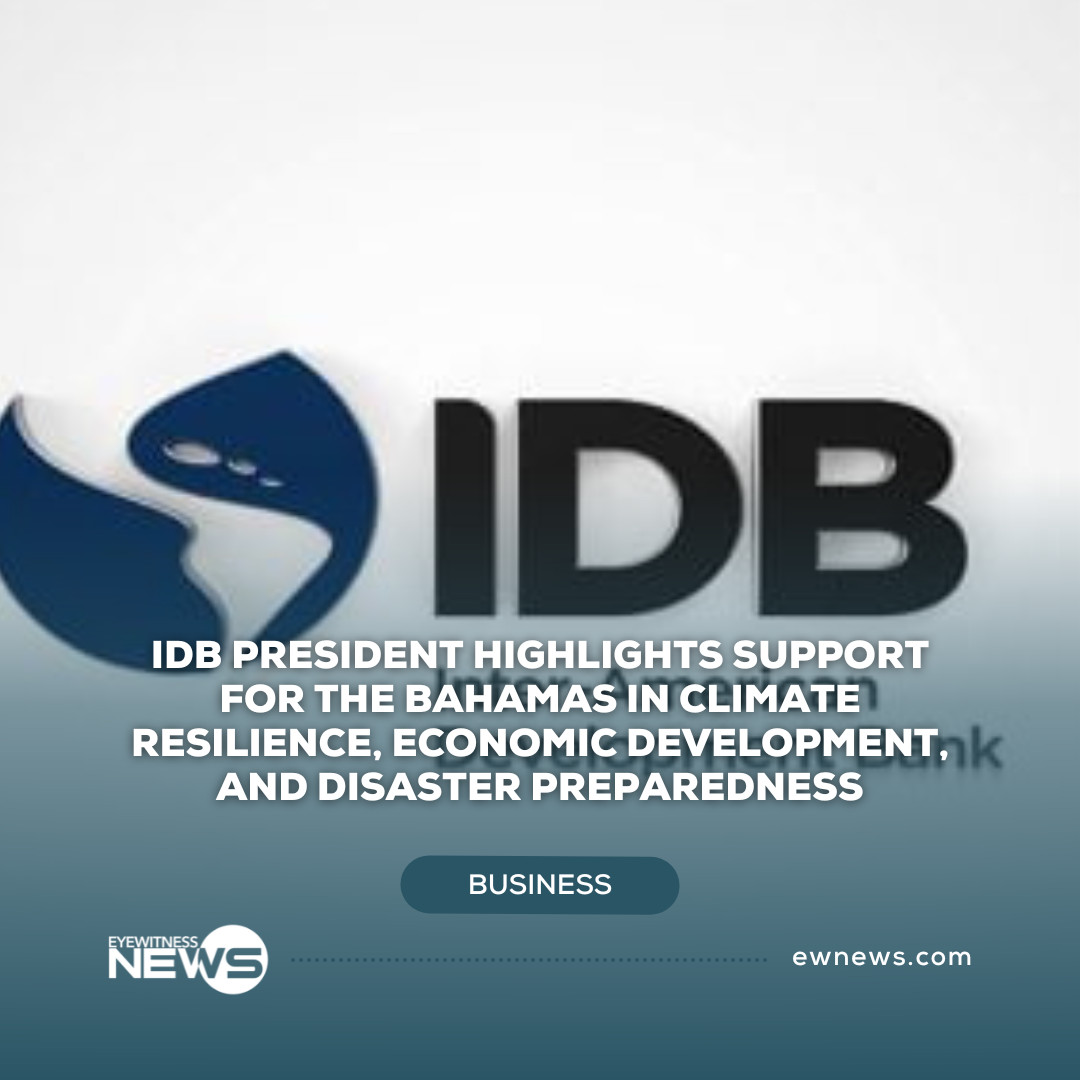NASSAU, BAHAMAS – Inter-American Development Bank President Ilan Goldfajn, addressing the XIII Annual Consultation with the Governors of Caribbean member countries, emphasized the Bank’s strong support for The Bahamas through key investments in climate-resilient infrastructure, disaster recovery, and marine conservation projects aimed at promoting long-term sustainability.
“The last few years have tested the resilience of countries across our region. Yet, The Bahamas has shown extraordinary determination. What is particularly commendable is The Bahamas’ commitment to reforms that lay the groundwork for long-term sustainability and growth. These include fiscal consolidation, which has reduced financing needs, as well as comprehensive energy and resilience reforms,” said Goldfajn.
He continued, “We are helping The Bahamas expand climate-resilient infrastructure through initiatives like a $100 million credit line to expand water systems, a $35 million project to boost the capacity and climate resilience of four airports, and a $9 million grant to increase the use of solar energy. We’re also supporting the Preparedness, Recovery and Reconstruction Country Team (P2RCT), which was created after Hurricane Dorian to make the government more responsive in disaster situations. This year, we participated in a groundbreaking debt-for-ocean conservation operation, which will allocate nearly $124 million to marine conservation projects in The Bahamas. IDB Invest, our private sector arm, is providing $10 million to improve liquidity for SMEs across the country.”
Looking at the Caribbean region as a whole, he noted that Caribbean economies have been among the best-performing in Latin America and the Caribbean. “However, the Caribbean also faces some critical structural challenges. First, it is one of the world’s most climate-vulnerable regions. Second, violent crime continues to undermine quality of life and slow economic growth. Third, limited investment is hindering productivity and the expansion of the private sector. Lastly, our dependence on imported food leaves us vulnerable to price shocks, making food unaffordable for many,” he noted.
He added: “Yet, even within these challenges, there are remarkable stories of success. Barbados is now a world leader in climate action, with a holistic strategy embodied in the Roofs to Reefs Program. Jamaica has been a model of fiscal discipline and successful debt management, while also making significant advances in sustainable agriculture and tourism. Trinidad and Tobago’s National Energy Policy has demonstrated how governments can encourage renewable energy use while boosting energy efficiency.”
Goldfajn highlighted that in 2024, the IDB approved $790 million in new projects and programs. Looking ahead, the Bank’s pipeline for 2025 includes over $1.1 billion to support infrastructure resilience, skill training, and expanded access to credit for small businesses.
“The debt-swap for marine conservation in The Bahamas is one of several such initiatives. We also worked with Barbados on an operation that generated $125 million in fiscal savings, which will be reinvested in new resilience projects. We’re also working on a bioeconomy project with Suriname that will provide renewable energy, potable water, and telecommunication systems to rural Amazon villages. Through IDB Invest, we are helping Caribbean companies drive the energy transition with $120 million in financing and technical assistance as part of the Caribbean Net-Zero and Resilient Private Sector Program. And IDB Lab is investing $750,000 to support the Caribbean’s first health innovation accelerator and incubator, strengthening regional health innovation.”
On the importance of regional cooperation, he said: “To tackle challenges that transcend borders, we need a coordinated regional approach. That’s why, last year, our Governors endorsed the ONE Caribbean strategic framework. Designed through a series of dialogues with you, this framework focuses on the four structural challenges I’ve mentioned: climate vulnerability, citizen security, slow growth, and food security. In just under a year, we have made significant progress, working together to address these challenges.”
“The IDB has allocated $20 million of internal grant resources and mobilized additional funding, including over $6 million from the UK. I’m proud to report that we have developed six early grant initiatives with $4 million of our internal resources, which have attracted an additional $1.2 million in external funding. These initiatives include ONE Safe Caribbean, which will help increase the capacity of prosecutors in the region to address transnational organized crime, as well as a program strengthening cybersecurity capabilities to better respond to cyber incidents.”


















